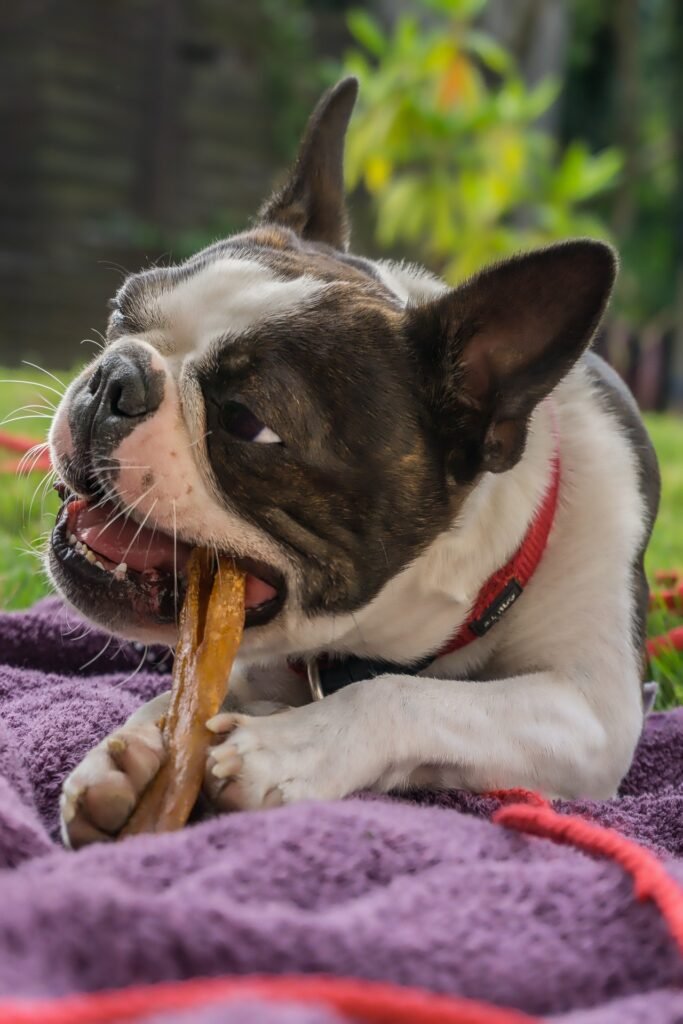Introduction: Nylabones have rapidly become one of the most popular dog chews, for pet owners seeking engaging and durable chew toys and play items for their furry friends. However, behind the excitement about these manufactured chews is a prevalent query: Are nylabones safe for our puppy buddies? This article aims to answer this particular question by providing expert information and analysis, and the desired information will enable pet parents to make wise decisions concerning their dog’s play items. Primarily, we will address the safety in this arrangement by looking at what Nylabones are, what they are made from, any possible benefits, and lastly, the hazards associated with the use of Nylabones, and the sole purpose is to ensure that your puppy is happy and protected.

What Is a Nylabone
Nylabones are synthetic chew toys designed to satisfy dogs’ natural urge to gnaw and chew. They come in various shapes, sizes, and textures, catering to different breeds and chewing preferences.
Nylabones are typically made out of non-toxic nylon material. This nylon is chosen for its durability and resistance to chewing, making it suitable for dogs who love to gnaw on objects. Some Nylabones may also contain flavorings or additives to entice dogs to chew, with reputable brands ensuring these enhancements are safe for consumption. Additionally, certain Nylabones feature textured surfaces designed to aid in dental hygiene by removing plaque and tartar buildup, promoting better oral health for our furry companions.
Are Nylabones Safe For Dogs?
Although Nylabones are crafted to promote healthy chewing habits in dogs, they are not entirely risk-free for dogs and puppies.There’s a potential for them to cause dental damage, trigger allergic reactions, pose a choking hazard, or lead to digestive upset. If you suspect your dog has consumed any portion of a Nylabone, whether small or large, it’s crucial to contact your veterinarian promptly.Selecting the appropriate chew toy size is paramount for your dog’s safety. It should be large enough to prevent swallowing. Additionally, choose a toy that aligns with your dog’s chewing tendencies, factoring in age, breed, health, and weight. Ensure the toy isn’t excessively hard, risking dental harm, or overly soft, leading to easy shredding. Regular supervision or periodic checks are essential; dogs should never be left unsupervised with chew toys: Durable rubber toys such as Kong or Chuckit! balls offer a safe chewing outlet and can be filled with treats for added enjoyment.
Nylabone Alternative:
If you’re searching for alternatives to Nylabones, here are some options to explore:
- Rubber Chew Toys: Durable rubber toys such as Kong or Chuckit! balls offer a safe chewing outlet and can be filled with treats for added enjoyment.
- • Natural Chews: Items like bully sticks, deer antlers, or rawhide (if tolerated well) provide natural and digestible alternatives to synthetic toys.•
- Edible Dental Treats: Dental treats like Greenies or Whimzees are designed to promote oral health while offering a gratifying chewing experience.
Key Recommendations:
Consultation: Consult with your veterinarian to determine whether Nylabones are suitable for your dog based on their individual needs and chewing habits.
Alternative Options: If Nylabones pose potential risks for your dog, consider alternative chew toys made from softer materials or natural ingredients.
Training: Incorporate proper training techniques to encourage safe chewing behaviors and discourage destructive chewing habits
FAQs About Nylabones
Do vets recommend Nylabones?
Yes, many veterinarians recommend Nylabones as safe and beneficial chew toys for dogs. They can help satisfy a dog’s natural urge to chew while promoting dental health and mental stimulation.
Are plastic Nylabones safe for dogs?
Plastic Nylabones are generally considered safe for dogs. However, pet owners should supervise their pets while chewing to prevent ingestion of large pieces, which could pose a choking hazard or cause gastrointestinal issues.
Is it okay if my dog eats Nylabone?
While it’s not ideal for dogs to consume Nylabones, small amounts ingested typically pass through the digestive system without causing harm. However, pet owners should be cautious and monitor their dogs closely, as ingestion of large chunks can lead to gastrointestinal issues or blockages.
How long should a dog chew Nylabone?
Dogs should chew Nylabones under supervision, and it’s recommended to replace them when they become worn down or small enough to be swallowed. This helps prevent potential choking hazards and ensures the safety of your pet.
Are Nylabones digestible?
Nylabones are not designed to be digestible. Ingesting large pieces can lead to gastrointestinal issues or blockages, so it’s essential to monitor your dog’s chewing habits and remove any small or broken-off pieces promptly.
Do Nylabones wear down dog teeth?
Continuous chewing on hard surfaces like Nylabones can contribute to wear on dog teeth over time. However, proper sizing of the Nylabone and supervision during chewing can help mitigate this risk and promote dental health.
Can a Nylabone cause a blockage?
Yes, if a dog ingests a large piece of Nylabone, it can potentially cause a blockage in the digestive tract. This requires immediate veterinary attention to prevent serious complications.
What do vets recommend for dogs to chew on?
Veterinarians often recommend a variety of chew toys for dogs, including natural bones, rubber toys, and dental chews. The best choice depends on the individual dog’s preferences, chewing habits, and any dental health concerns.
When to throw away Nylabone?
It’s advisable to throw away a Nylabone when it becomes small enough to be swallowed or when it shows signs of significant wear and tear. Regularly inspecting the Nylabone for damage and replacing it as needed helps ensure the safety of your dog during chewing sessions.
